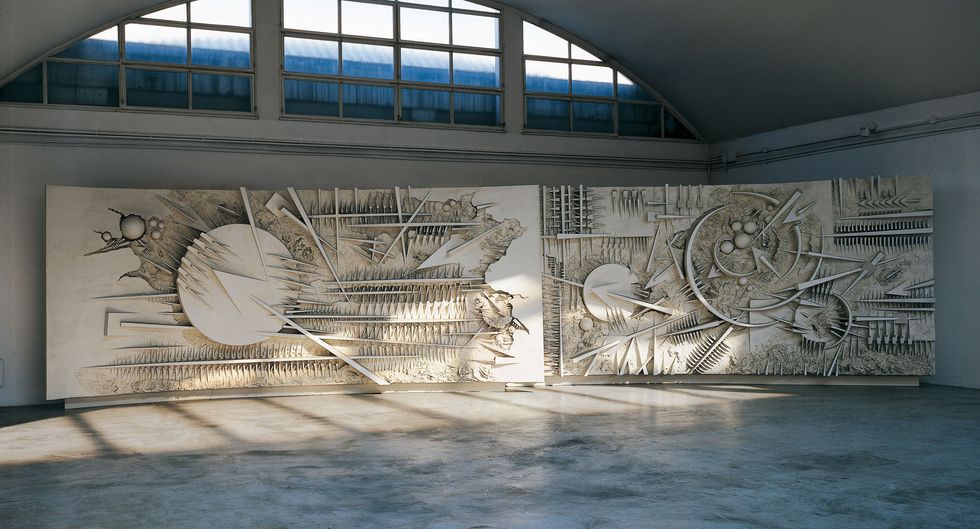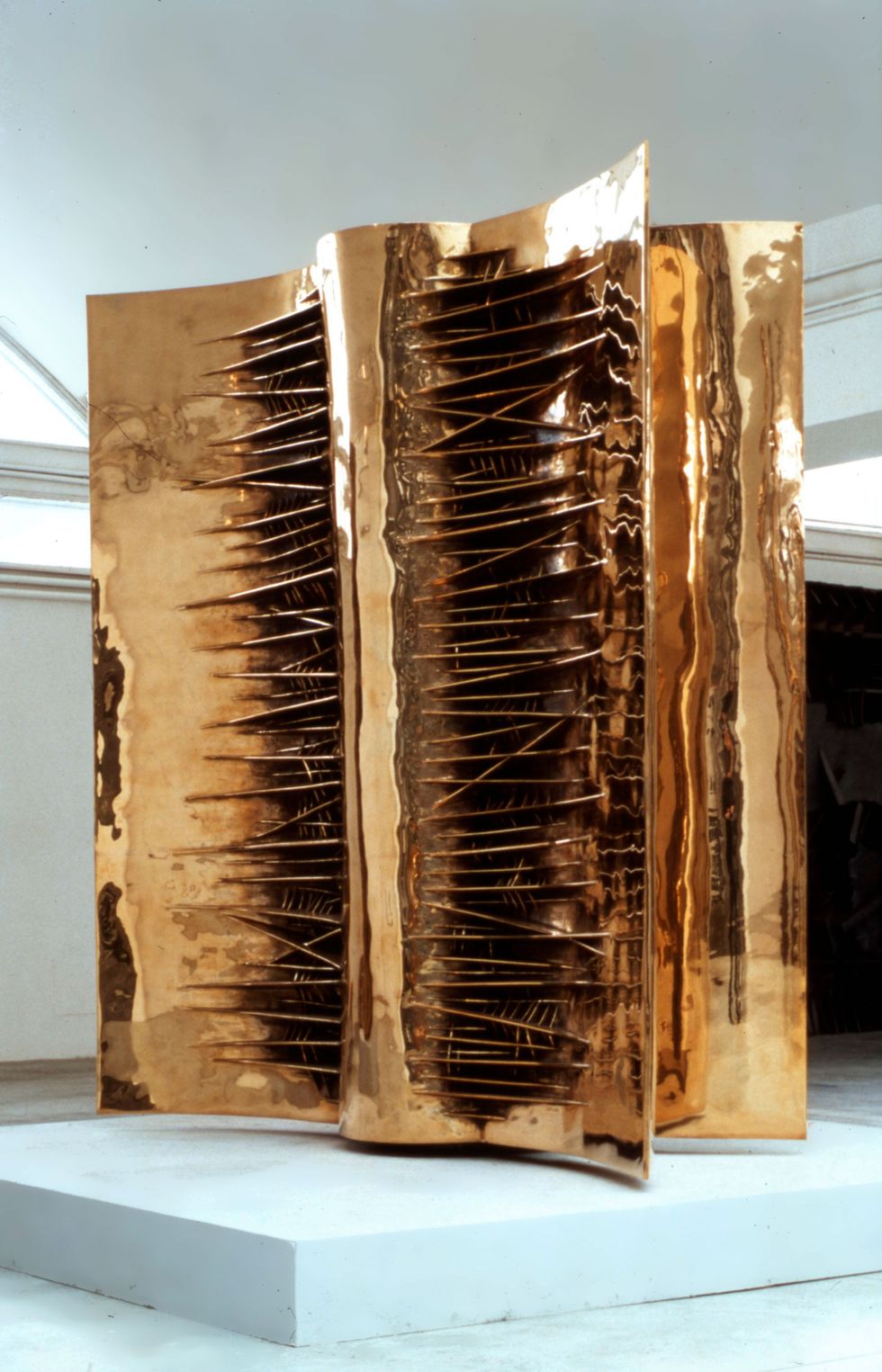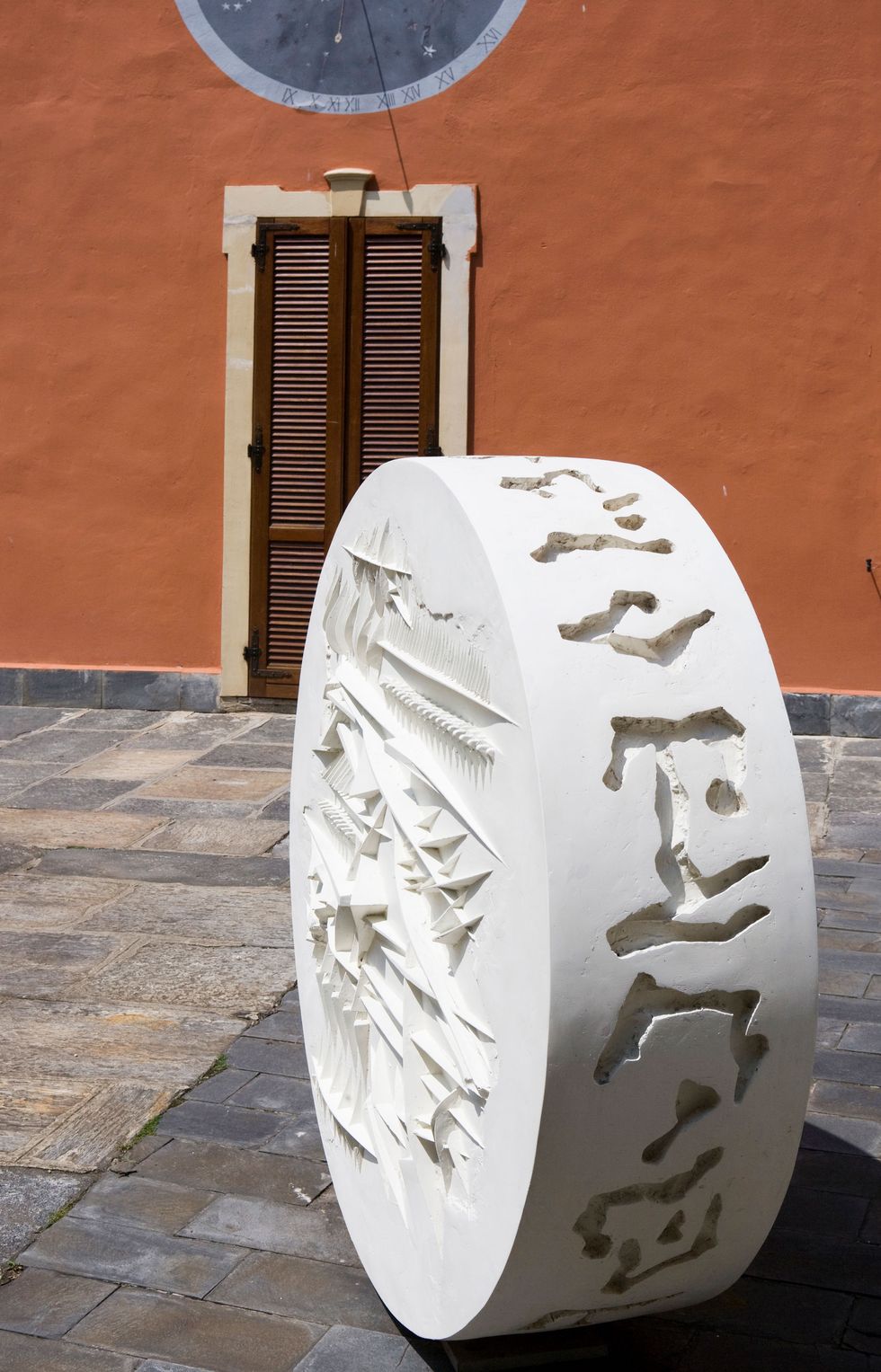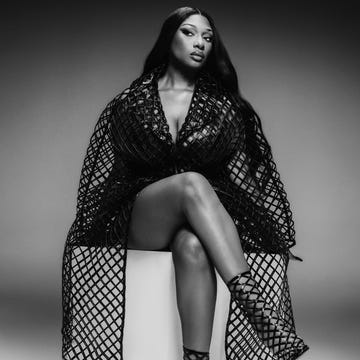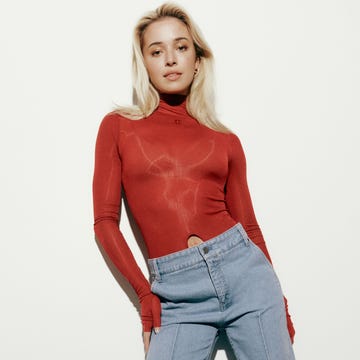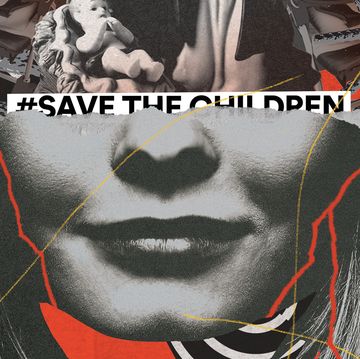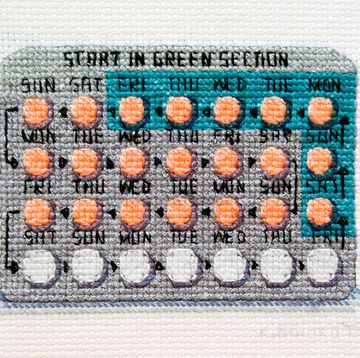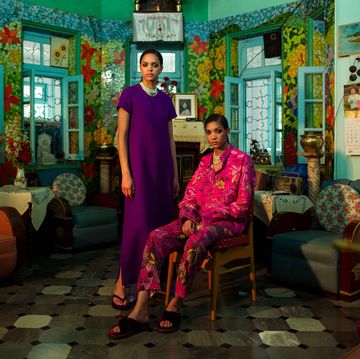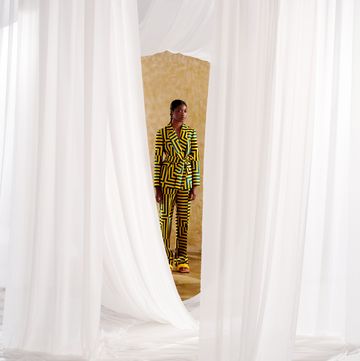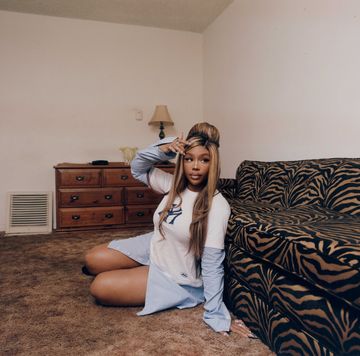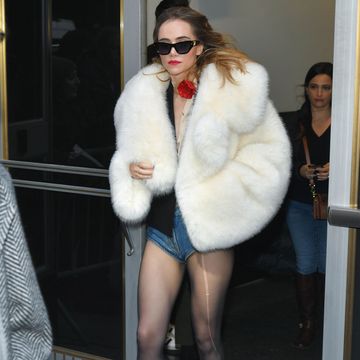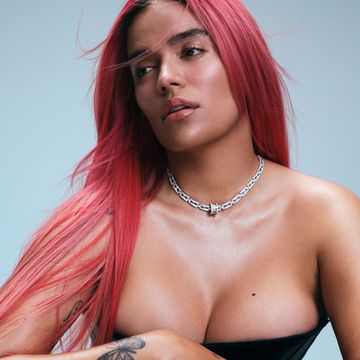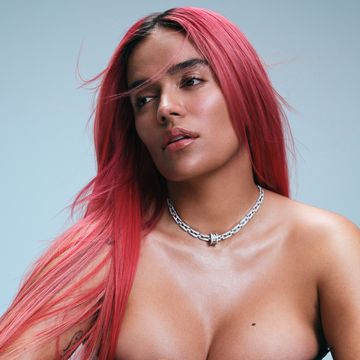First came Fendi, then came Arnaldo Pomodoro. The famed Italian sculptor was born just a year after the historic Italian fashion house that has taken inspiration from his work over a decade-long relationship. Now Fendi is celebrating the interplay between the two with Arnaldo Pomodoro: The Great Theatre of Civilizations, an exhibition of the artist’s work on display through October 1 at Palazzo della Civiltà Italiana, a rectangular architectural highlight known as the Square Colosseum, which serves as the brand’s Rome headquarters. The show traces themes of history and mythology seen throughout Pomodoro’s work and includes pieces created over more than 70 years, among them never-before-seen archival materials.
The connection between the two began in 2013, when Fendi opened its Milan showroom in Via Solari 35, a former steel plant that later housed the Arnaldo Pomodoro Foundation. Fendi maintained a space for Pomodoro’s large-scale piece Ingresso nel labirinto (“Entry Into the Labyrinth”), which served as a source of fascination to visitors. “The space was proposed to us as is, with black bridges designed to have spectators go through the museum and see Pomodoro’s huge artworks from different heights. This labyrinth stayed in the basement, and we always kept it accessible to the public,” says Serge Brunschwig, who has served as Fendi’s chairman and CEO since 2018.
The Great Theatre of Civilizations began with Brunschwig’s first meeting with the 96-year-old Pomodoro. “I proposed to the maestro maybe we could do a beautiful exhibition at Palazzo della Civiltà, and then the discussion started,” he says. “When you are fortunate enough to be introduced to someone with this extraordinary legacy and you have dreamed in front of his pieces of art all around the world, and suddenly the person is in front of you—it’s a great moment.” The show is part of the house’s continued commitment to art, exemplified by earlier projects like a partnership with Rome’s Galleria Borghese that resulted in shows by artists such as Giuseppe Penone and Caravaggio.
The exhibit marks the launch of an ongoing relationship between Fendi and the Pomodoro foundation that includes a Pomodoro interpretation of the house’s beloved Peekaboo bag, as part of the Fendi Canvas Peekaboo project, which began in 2014. Pomodoro’s take explores the concept of function in objects and adds exaggerated spikes to the design of the bag.
The exhibition is spread across both the interior and exterior of Palazzo della Civiltà Italiana, and its staging is inspired by theater. In bringing together Pomodoro’s sculptures and pieces from his archives, it aims to encompass the essence of his career and vision. The 30-odd artworks shown explore the concepts of civilizations past and future, as well as mythology. Among them are four bronze sculptures known as the Forme del mito, each of which is named after characters from Aeschylus’s Oresteia trilogy; two of Pomodoro’s Greek costumes created for the theater; and his more characteristically monumental works, like Movimento in piena aria e nel profondo.
Despite their different approaches, Brunschwig considers Fendi and Pomodoro to be very much alike. Fendi started out as “a couple of artisans who together opened an atelier and small boutique in Rome to design and sell objects in fur and leather. That’s the story. It’s a continuation of the story from Mr. Pomodoro. He has started to work with metal and other materials in a very specific way. He has crafted these spectacular pieces with time and patience,” Brunschwig says. “I’d like to call Fendi a master of material. Mr. Pomodoro is a heck of a master of materials.”
Brunschwig hopes the exhibition inspires a love of Pomodoro’s work in Fendi fans worldwide, imploring them to “look for the Pomodoro that is nearest to them somewhere in the world—in New York, in Milan, in Rome, in Tokyo and in so many places,” he says. “I think it could be an interesting game: Look for your closest Pomodoro piece.”
This story appears in the June/July 2023 issue of ELLE.

Adrienne Gaffney is the features editor at ELLE and previously worked at WSJ Magazine and Vanity Fair.

